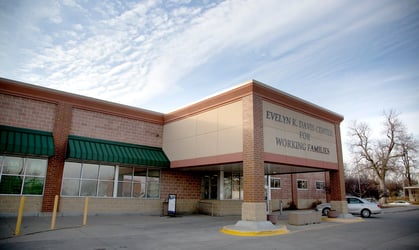United Way of Central Iowa
News
Featured Article Headline Lorem Ipsum Dolor Sit Amet
Lorem ipsum dolor sit amet, consetetur sadipscing elitr, sed diam nonumy eirmod tempor invidunt ut labore et dolore magna.
DateTopic
View All
Filter By:
- April 2025 (1)
- February 2025 (1)
- January 2025 (2)
- November 2024 (3)
- October 2024 (1)
- September 2024 (3)
- July 2024 (2)
- May 2024 (1)
- April 2024 (1)
- March 2024 (1)
- February 2024 (1)
- December 2023 (1)
- October 2023 (2)
- July 2023 (2)
- May 2023 (3)
- February 2023 (2)
- January 2023 (2)
- December 2022 (2)
- October 2022 (2)
- August 2022 (3)
- July 2022 (1)
- June 2022 (1)
- May 2022 (3)
- March 2022 (1)
- February 2022 (2)
- December 2021 (2)
- November 2021 (1)
- October 2021 (1)
- September 2021 (2)
- July 2021 (1)
- June 2021 (3)
- May 2021 (2)
- April 2021 (4)
- March 2021 (4)
- February 2021 (1)
- January 2021 (2)
- December 2020 (1)
- November 2020 (2)
- October 2020 (2)
- September 2020 (5)
- August 2020 (2)
- July 2020 (2)
- June 2020 (5)
- May 2020 (3)
- April 2020 (3)
- February 2020 (1)
- January 2020 (1)
- December 2019 (2)
- November 2019 (1)
- October 2019 (3)
- August 2019 (3)
- July 2019 (1)
- June 2019 (2)
- April 2019 (3)
- February 2019 (1)
- January 2019 (1)
- December 2018 (2)
- November 2018 (1)
- October 2018 (3)
- September 2018 (2)
- August 2018 (3)
- July 2018 (1)
- June 2018 (2)
- April 2018 (1)
- February 2018 (1)
- January 2018 (2)
- December 2017 (1)
- November 2017 (7)
- October 2017 (5)
- September 2017 (6)
- August 2017 (5)
- July 2017 (5)
- June 2017 (5)
- May 2017 (4)
- April 2017 (6)
- March 2017 (4)
- February 2017 (2)
- January 2017 (9)
- December 2016 (4)
- November 2016 (8)
- October 2016 (2)
- September 2016 (3)
- August 2016 (4)
- July 2016 (6)
- June 2016 (3)
- May 2016 (7)
- April 2016 (4)
- March 2016 (6)
- February 2016 (2)
- January 2016 (1)
- November 2015 (2)
-

Opportunities to grow retail industry workforce in central Iowa
Financial Stability
United Way of Central Iowa’s Central Iowa Works convened a meeting with area retail and service industry employers and other community stakeholders... -

10 facts you should know about poverty in central Iowa
Education
One in three central Iowans doesn't earn enough to cover basic expenses without support. Many struggle to find enough food to eat or a place to sleep... -

Why hire someone with a criminal record?
Financial Stability
Nearly every individual in prison today will eventually return to our community. Most are eager to rebuild their lives and achieve long-term... -

Stephanie Chin named Community Impact Officer of Income
Financial Stability
United Way of Central Iowa has hired Stephanie Chin as community impact officer – income. In this role, Stephanie will lead the community’s efforts... -

What is poverty in Des Moines and across the region?
Financial Stability
The U.S. Census focuses on federal poverty at 100% - a point where 11.1% of central Iowans cannot afford food, housing, and other basic needs. Above... -

3 Youth Career Readiness Programs in Des Moines
Education
Youth in central Iowa, particularly those living in poverty, are much more likely to graduate high school and earn more money throughout their lives... -

Donate food for families in need during the holidays
Financial Stability
You can bring a box of hope to a family in need this holiday season. -

UWCI Commends Future Ready Iowa Policy Recommendations
Financial Stability
United Way of Central Iowa commends Future Ready Iowa Co-Chairs, Gov. Kim Reynolds and Dan Houston, and the Future Ready Iowa Alliance, for the final... -

Central Iowa Works to advance retail careers with grant
Financial Stability
The National Fund is awarding $900,000 in grants made possible through a grant from Walmart to the Baltimore Workforce Funders Collaborative, Central... -

5 Ways to Welcome Refugees to Central Iowa
Financial Stability
Welcoming and supporting refugees is on people’s minds these days—and in our conversations. Refugees share our neighborhoods, schools, and workplaces...